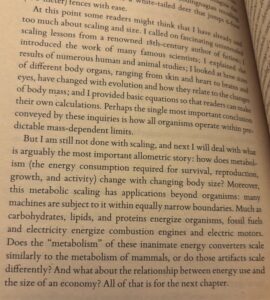
Reading Time: 9 minutes
Updated 8th June 2024
Many people dream of being able to quit the day job, open a laptop (or typewriter, if you’re old-school), and write a best-selling novel. But, to be honest, that’s a really tough ask. So, instead many aspiring novelists start writing short stories.
A recent 2023 survey revealed the average salary of a fiction author in the UK is just £7,000. Most people who are authors – even names you might recognise on the bookshelf – will have another job to supplement their income, or have a partner who can cover their expenses. However, with the rise of BookTok, Bookfluencers, and Bookstagram (yes, those are actual online things), and the massive success of huge books like the Fourth Wing series, being a reader is popular again. In fact, the printed book market grew in 2023 despite the same number of books being published!
However, writing a novel is a MASSIVE undertaking, and many of us don’t have the time to do it. It takes years of work before you can even think about finding a publisher or self-publishing it, and that means the return on your time investment is low. Short stories, on the other hand, can reap big rewards for less work.
In fact, there are competitions that pay out thousands of pounds to the best story!
To give you some help, here is our guide to making money writing short stories.
Where Do I Begin with Writing Short Stories?

 Your first stop is to find out what opportunities are available.
Your first stop is to find out what opportunities are available.
Magazines are by far your best chance of finding a willing publisher for your short story. Places like Writers Online, the website for the largest UK writing publication, Writing Magazine, list competitions regularly.
Frankly, getting a book published has always been competitive, but submitting a short story to a print or online magazine is still one of the best entry points. You can make a career out of being a short story writer, or use your wins and accolades to build a writing CV and attract a literary agent for your novel.
If you’re hoping to make money at all from your stories, then fighting against the odds is something you’ll have to get used to – it’s one of the most competitive industries out there.
It’s for this reason that we should point out that you probably shouldn’t be writing short stories for the cash. Really, there are much easier ways to make money (just check out our make money section!) and if your heart isn’t in it, then it’s going to show in your writing.
You need to be passionate enough about writing that payment would be a nice bonus (rather than a necessity) to stand a chance of getting anywhere.
Places to Sell Your Stories…


Thankfully for those who do love writing, there are numerous magazines that accept submissions and run competitions.
Check out the Booktrust’s breakdown of magazines and this site for regular short story competitions.
Women’s magazines have a lot of short story opportunities. Magazines such as My Weekly, The People’s Friend, Woman’s Weekly, Prima, and Mslexia all accept submissions. If you’re a regular reader, then you’ll probably have a good idea of what they expect. The Moth magazine runs one of the biggest short story prizes each year, with a top prize of £3,000. Writing Magazine runs small contests each issue – some are open to anyone while others are for subscribers only, and the average prize is £200 with a Grand Prize contest once a year for £1,000.
Don’t worry if you don’t think the audience of women’s magazines will appreciate your fiction, as there are lots of other magazines that cater for plenty of genres.
Many on the list cater for a range of stories and others also specialise:
- Crimewave focuses on crime (you may have guessed!)
- and Albedo One focuses on sci-fi and horror.
It’s not a magazine, but the Bridport Prize is one of the most renowned and respected fiction competitions and runs each year with a top prize of £5,000!
You could also consider PenPee. Penpee.com is a platform like Netflix/Airbnb for readers and storytellers to read, write, and get paid for short stories.
Writers get paid for every qualified page of their stories read. With Penpee’s recent introduction of “Read and Rate”, storytellers want readers’ opinions and readers get paid when they write a review and rate stories they read at Penpee.com
How Do I Write a Good Short Story?
If you want to earn money for your stories, then you’re going to need to be a competent writer with a good understanding of narrative structure and characterisation.
- It can be hard getting an honest opinion, if you’re not sure how good you are at writing. Family and friends will almost certainly tell you you’re the next JK Rowling, so try and get impartial advice. Sign up to a writers’ forum and get feedback on your work.
- There are many good writers’ forums out there, but start by checking out writingforums.org or The Writer’s Digest forum.
- If you’re not good enough yet there’s a lot of information online that can provide a good foundation for improving your writing such as writersdigest.com and Creative Writing Now. You might also have some luck on forums like Reddit but it can be hit or miss.
There are also lots of useful videos on YouTube that can teach you how to write. If you have a bit of spare cash, the BBC Maestro and the Masterclass courses are led by household-name authors and writers with really interesting insights. Wait until they run offers, usually a few times a year – their January sales are usually the best time of year to nab a bargain. Or, if you’re one of those people who can never think of what to ask for as a birthday present, ask for a subscription!
If you’re really serious then you could take a writing course
…although you’ll probably have to pay for a good one. Still, if it’s a hobby and you can afford it, then why not?
Before you look at paid courses, learn the foundation skills with free courses. Udemy has some great basic classes, while the Open University has a useful course that’s free for anyone.
- There are many writing courses around and finding the right one for you will simply be a matter of searching for one that takes your fancy.
- Remember to research thoroughly before handing any money over. The Writers’ Academy is a good place to start because you can do online courses with top editors, bestselling authors and established tutors – although you will be looking at paying a few hundred pounds.
- For something a bit special, you could check out the Arvon residential creative writing courses. You get to surround yourself with beautiful countryside and get lost in your writing for a few days. It is open to people of all ages and of all ability, regardless of experience. As this is residential, there is a cost. However, the courses are supported by the Arts Council of England, and other donors, so you can apply for a grant if you can’t afford the course. In some cases, all the course costs are covered and nine out of ten people get some grant support.
Find Peers to Support You
One thing any professional writer will tell you is to surround yourself with other writers. You probably have a local writing group near you – apps like NextDoor and Eventbrite are useful for finding events in your area.
If you prefer working online instead, Writers HQ and Jericho Writers are examples of online forums that build a support network of fellow writers. If you subscribe to writing magazines like MsLexia and Writing Magazine, they usually have an online forum to access, too. When you’re working in groups like this, remember it is as much about what you can give as what you can get. You’ll benefit the most from groups if you engage with them, voice your opinions, and try to help others as they try to help you.
Tips From Professionals


If you’re fairly confident that you can write, then there are things you can do to increase your chances of getting published and earn some cash.
- Write in a genre you’re comfortable with. If you usually write fantasy then you may struggle to write a romance story. Choose magazines to submit to that play to your strengths.
- But do compromise. While you should write for familiar genres, if you want to make money then you’re going to need to be flexible to appeal to a specific readership. Then, you can apply for more than one really niche magazine. Plus, there’ll be a lot of guidelines you need to follow, speaking of which…
- Stick to the guidelines. Make sure you follow the instructions provided by the site to the letter. Nothing will blow your chances of getting published faster than submitting a 4,000 word story for a competition that allows a maximum of 2,000 words. Some guidelines will specify what shouldn’t be in the story (e.g. explicit sex scenes), while others will go so far as to specify who the main character should be (for example, a women’s magazine may want a female character who their readers can relate to). Make sure you format correctly too. It is usually 12 point font with double-spacing on the lines, but check the entry terms for details.
- Do your research. Decide which magazine you’re going to submit to and read it regularly. See what sort of stories they usually publish and if there’s something similar between them, whether it be genre, tone or style, then you’d be wise to do the same (I know this might sound crushing to your creative and original mind but, as said above, you’ll need to compromise to make money. Save your genre defying masterpiece for when you’re a bit more established!). Make sure you have a good sense of the readership from the articles and adverts in the magazine, as they’re the people you need to be writing for!
- Don’t simultaneously submit. Your writing muscles are going to stay flexible with this: most competitions won’t let you submit a story if you’ve already submitted it elsewhere. Check the terms of entry to see if they allow ‘simultaneous submissions’ which means they will let you submit to other contests. However, if you place in one with that story, you need to withdraw from any contests you’ve entered it into unless they specifically allow previously published stories to be entered. This means it is better to submit single stories instead of one story to lots of contests. However, there is nothing stopping you from entering last year’s stories into different contests this year if they didn’t place! So after a year you can start cycling through the stories in your files to submit.
If you follow those steps then you’re increasing your chances of getting published.
How Much Money Can I Make Writing Short Stories?
Each magazine offers different rates for contests.
- Usually £500 or so for a short story would be the top end, while a few will go into the thousands. The bigger the prize, the more competition you’ll face.
When it comes to payment for short stories in magazines that are not contest based, the fee can vary wildly. A 2000-word story might net you £500 or more, while other magazines don’t pay at all.
Some magazines pay per word
- For example, Fiction Desk Magazine pays £25 per 1,000 words (as well as a £100 bonus for the best story in each magazine). While this might not sound like a huge amount, if you’re getting paid anything to write fiction, then you’re doing something right. You also receive two copies of the paperback anthology. Many prizes and magazines offering anthologies will offer copies as part of your fee.
The Writers and Artists Yearbook is any writer’s go-to book for information about which magazines take short stories (and, if you’re feeling non-fiction inclined, other articles) and will list how much the fee is. The website also lists regular writing contests alongside tons of writing advice, so it’s a great one-stop shop.
Competitions tend to offer greater amounts
We’ve mentioned the other big contests, like the Bridport Prize, in this article too. Writing contests change all the time, so make sure you Google ‘writing contest [YEAR]’ to make sure you’re not missing out.
A note on fees
There are some free entry writing contests and they are ALWAYS worth entering. However, most contests will need an entry fee which can be anything from a couple of quid to around £20. You need to weigh up your chances of winning, the confidence you have in your work, and whether you can write off that cash if you don’t place in the contest, before paying. Make sure the competition has an established track record, too: anyone can set up a writing competition, so make sure the judges are high quality, the prizes are decent (or if low that they have a low entry fee), and there are testimonials from previous years if it has run before.
One of the good things about submitting to magazines is you very rarely have to give up the copyright, so you’re usually free to resell any published stories to magazines in other countries. Imagine how good it would feel making money from the same story multiple times!
Sign Up – Newsletter





